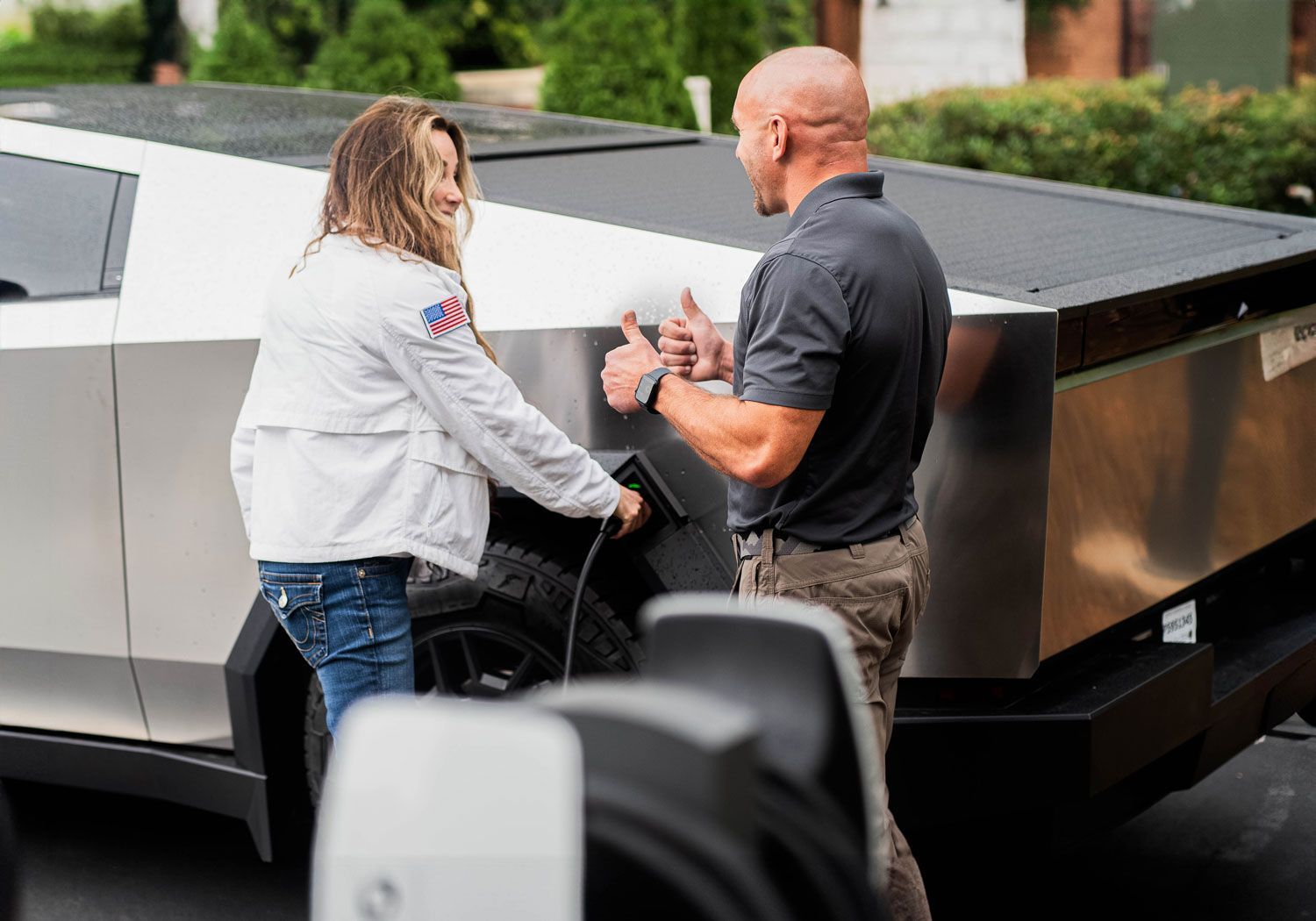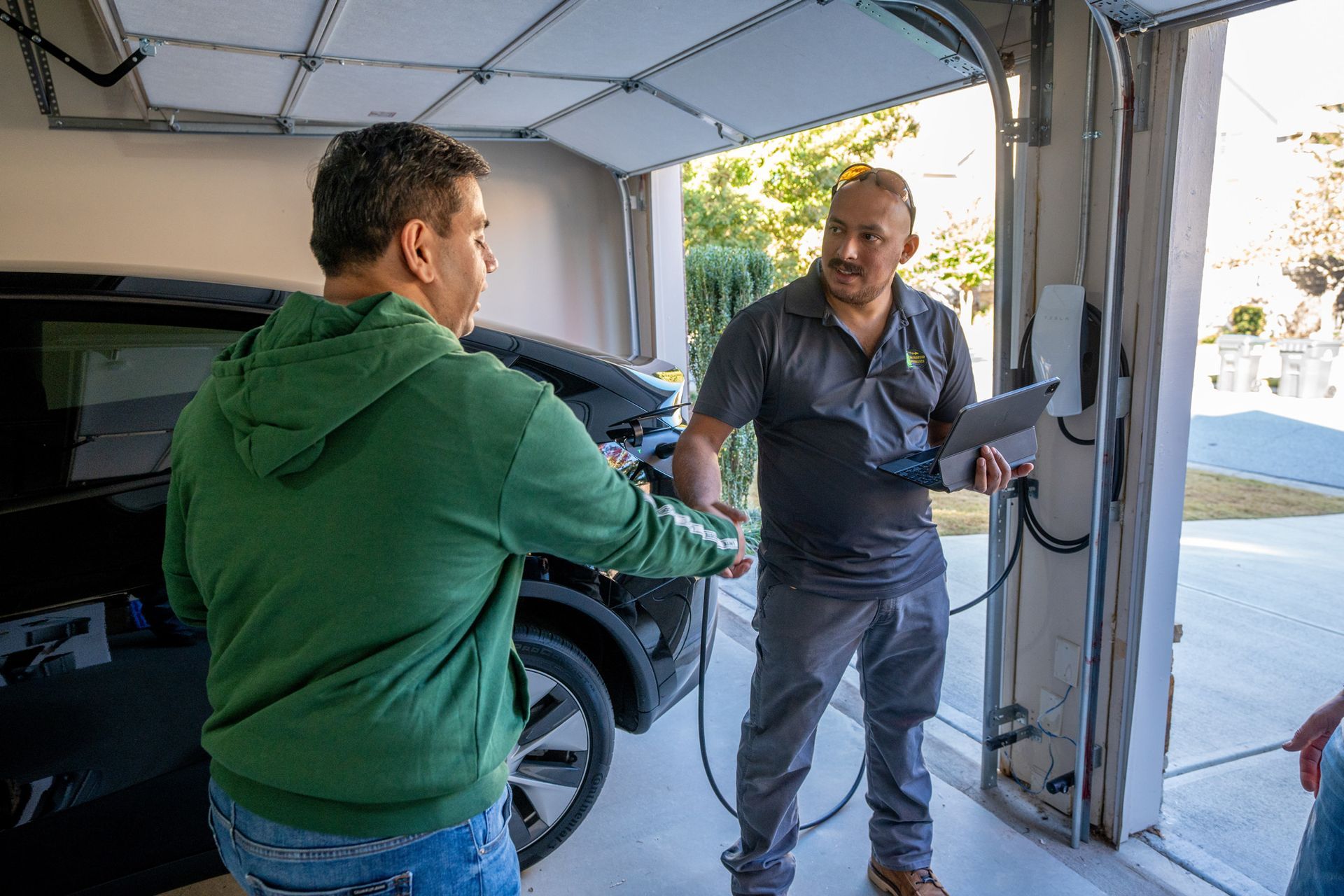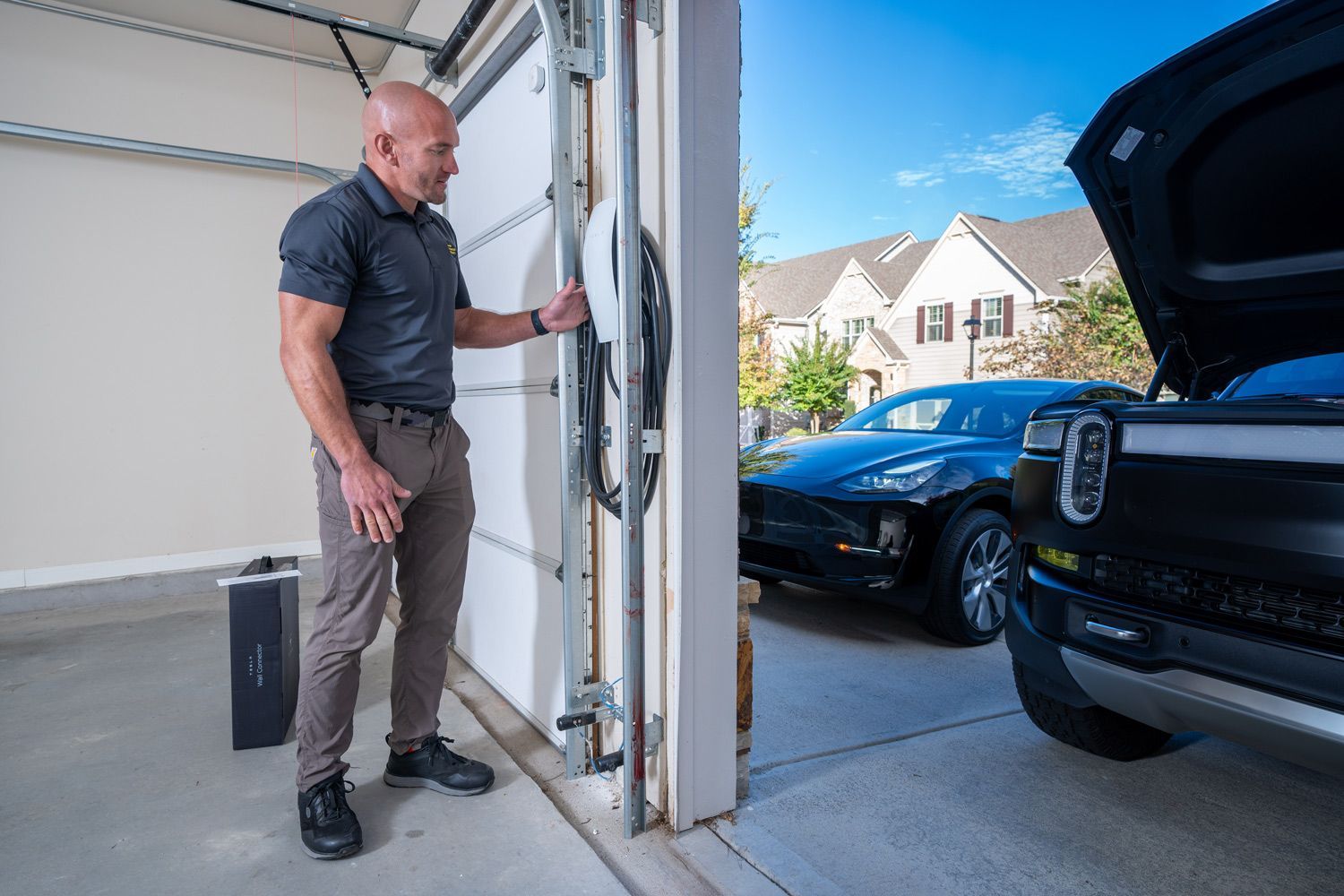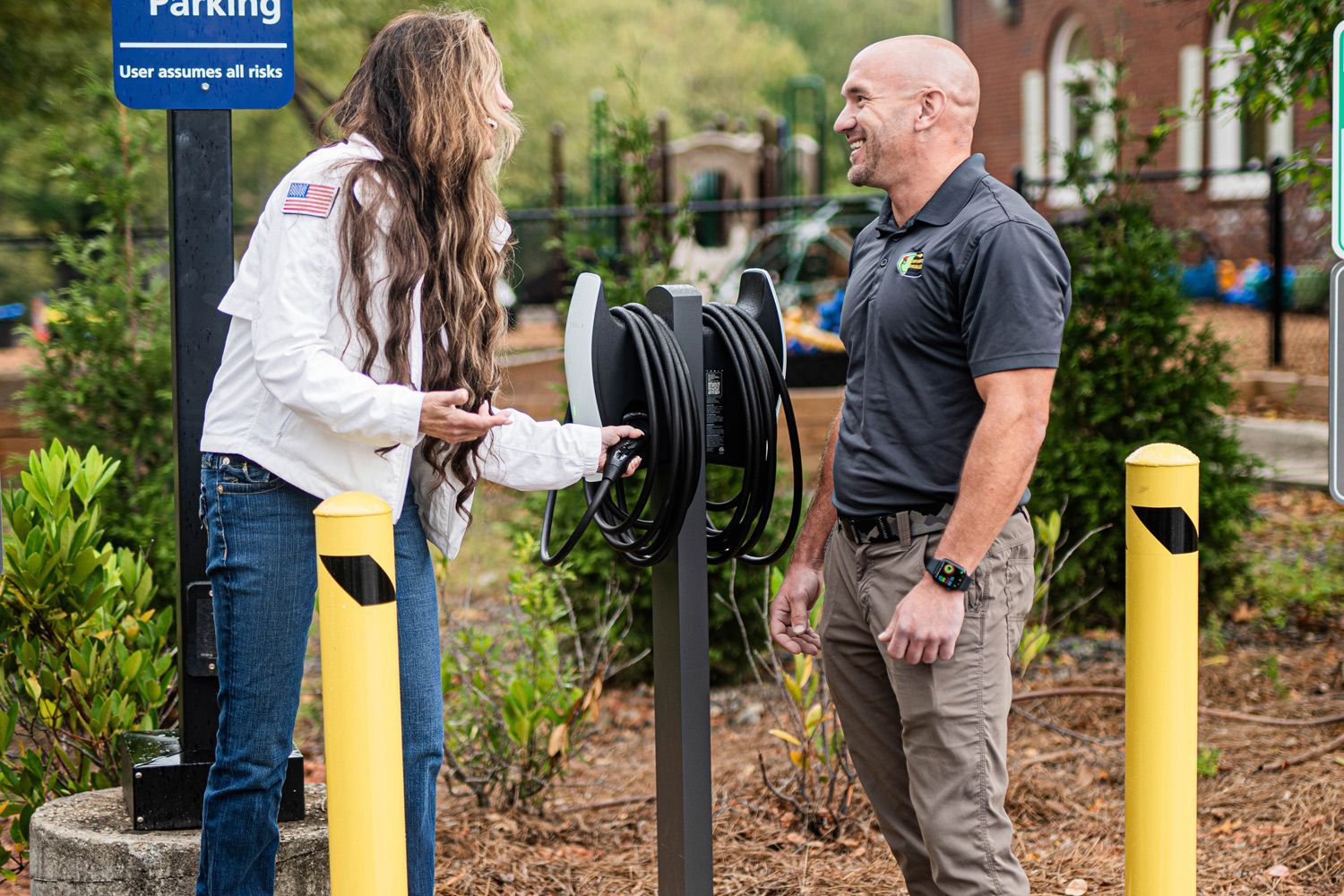As electric vehicles (EVs) become more popular, the demand for reliable, accessible, and efficient charging stations continues to grow.
Whether you’re a new EV owner or considering making the switch, understanding how charging stations work with different car models, how fast they charge, and where the future of EV charging is headed is essential for making informed decisions.
In this guide, we’ll explore the key aspects of EV charging, including capability with different vehicles, a comparison of charging speeds, and upcoming charging technologies that could shape the future of EV infrastructure.
One of the most important factors to consider when choosing an electric car charging station is compatibility. Not all EVs use the same charging systems, and understand which stations work with your car is key to avoiding any inconvenience.
Compatibility with Different EV Models
Most electric car manufacturers design their vehicles to be compatible with universal charging systems, meaning they can charge at most public charging stations. However, proprietary charging systems, like Tesla’s Supercharger network, are built specifically for Tesla vehicles but are beginning to open up to other brands in select locations. If you’re interested in how electric vehicles work and the types of charging they use, you can learn more from the U.S. Department of Energy’s overview on electric cars.
Tesla Supercharger
Tesla vehicles use their own proprietary charging connector, but Tesla has introduced adapters that allow non-Tesla EVs to charge at some Supercharger locations. Tesla’s network is known for its fast charging speeds and extensive coverage.
CCS (Combined Charging System)
This is the most common fast-charging standard for most non-Tesla vehicles, including the upcoming Dodge Charger EV, Volkswagen, and many others.
CHAdeMO
This standard is mainly used by older Nissan Leafs and a few other Japanese models. While CHAdeMO is less common now, many charging stations still offer this option.
Universal Chargers vs. Proprietary Systems
Dodge Charger EV
While Dodge has yet to release specific details on charging compatibility, it is expected to use the CCS standard for DC Fast Charging. This would allow Dodge EVs to charge at most public charging stations that support fast charging.
Tesla Models
Tesla cars can charge at Tesla Superchargers and, with adapters, at other public stations using J1772 or CCS connectors for Level 1 and Level 2 charging.
Other EVs
Most non-Tesla EVs, including models from Nissan, Chevrolet, BMW, and Ford, are compatible with J1772 connectors for Level 1 and Level 2 charging and use CCS for DC Fast Charging.
In general, the J1772 connector is the standard for Level 1 and Level 2 charging across almost all EV models, making it easy to charge at home or public stations with this connector.
Compatibility Across Brands
Charging speed is another crucial factor in determining how quickly you can get back on the road. EV charging speeds vary widely based on the level of charger you're using and the capacity of your vehicle’s battery. If you're looking to find charging stations near you, including Level 1, Level 2, and DC Fast Charging options, you can check the Alternative Fuels Data Center's Charging Station Locator.
Level 1 Charging
- Voltage: 120 volts (standard household outlet)
- Charging Speed: Adds 3-5 miles of range per hour
- Best For: Plug-in hybrids and EV owners with low daily mileage
- Example: A Chevrolet Bolt would take around 50+ hours to fully charge using a Level 1 charger.
Level 2 Charging
- Voltage: 240 volts
- Charging Speed: Adds 25-30 miles of range per hour
- Best For: Daily drivers and home installations
- Example: A Tesla Model 3 with a long-range battery can recharge in about 8-10 hours using a Level 2 charger at home or in public. The Dodge Charger EV (once released) is expected to have similar charging speeds.
DC Fast Charging (Level 3)
- Voltage: Typically 400+ volts
- Charging Speed: Adds 60-80 miles of range in just 20 minutes
- Best For: Long trips and public charging stations along highways
- Example: Tesla Superchargers or CCS Fast Chargers can charge a Tesla Model S or Ford Mustang Mach-E from 10% to 80% in about 30 minutes.
Comparison of Charging Speeds
As EV adoption accelerates, the technology behind charging stations is also advancing. Here’s a glimpse of what’s coming:
Wireless Charging
Imagine parking your care and having it charge automatically—no plugs, no cables. Wireless charging technology is still in development but promises a future where EV owners can charge their vehicles simply by parking in a designated area. This technology uses electromagnetic fields to transfer energy between a charging pad on the ground and a receiver on the vehicle.
Ultra-Fast Charging
Ultra-fast chargers are being developed that can deliver charging speeds even faster than today’s DC Fast Chargers. Some prototypes suggest that future ultra-fast chargers could deliver 300 miles of range in under 10 minutes. While these chargers are still in development, they could drastically reduce the wait times at charging stations.
Impact on Infrastructure
As new technologies like wireless charging and ultra-fast chargers are developed, the future of EV charging infrastructure is rapidly evolving. To dive deeper into the future of electric vehicles and charging technologies globally, check out the International Energy Agency’s Global EV Outlook 2023. This report highlights key trends and innovations that will shape the next generation of EV infrastructure.
Electric car charging stations are at the heart of the EV ecosystem, ensuring that drivers can keep their vehicles powered and ready to go. Whether you're navigating the compatibility of different EV models, figuring out the best charging speed for your car, or looking forward to future advancements like wireless charging, it's essential to stay informed. The world of EV charging is evolving rapidly, and being prepared will help you make the most of your electric vehicle.
Looking to set up a charging station for your EV? Contact Car Charger Specialists today for expert guidance on finding the best home or business charging solutions for your vehicle. From Tesla to the upcoming Dodge Charger EV, we’ve got you covered with the most reliable charging options available.
The Future of Charging Stations
Discover our most popular blog posts, covering everything from EV charger installation tips to the benefits of renewable energy.
Featured Blog Posts
All Rights Reserved | Car Charger Specialists




